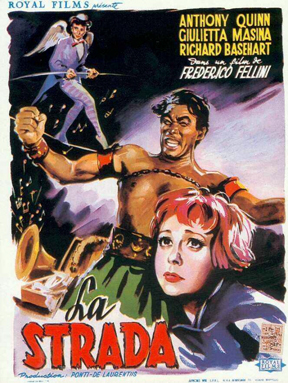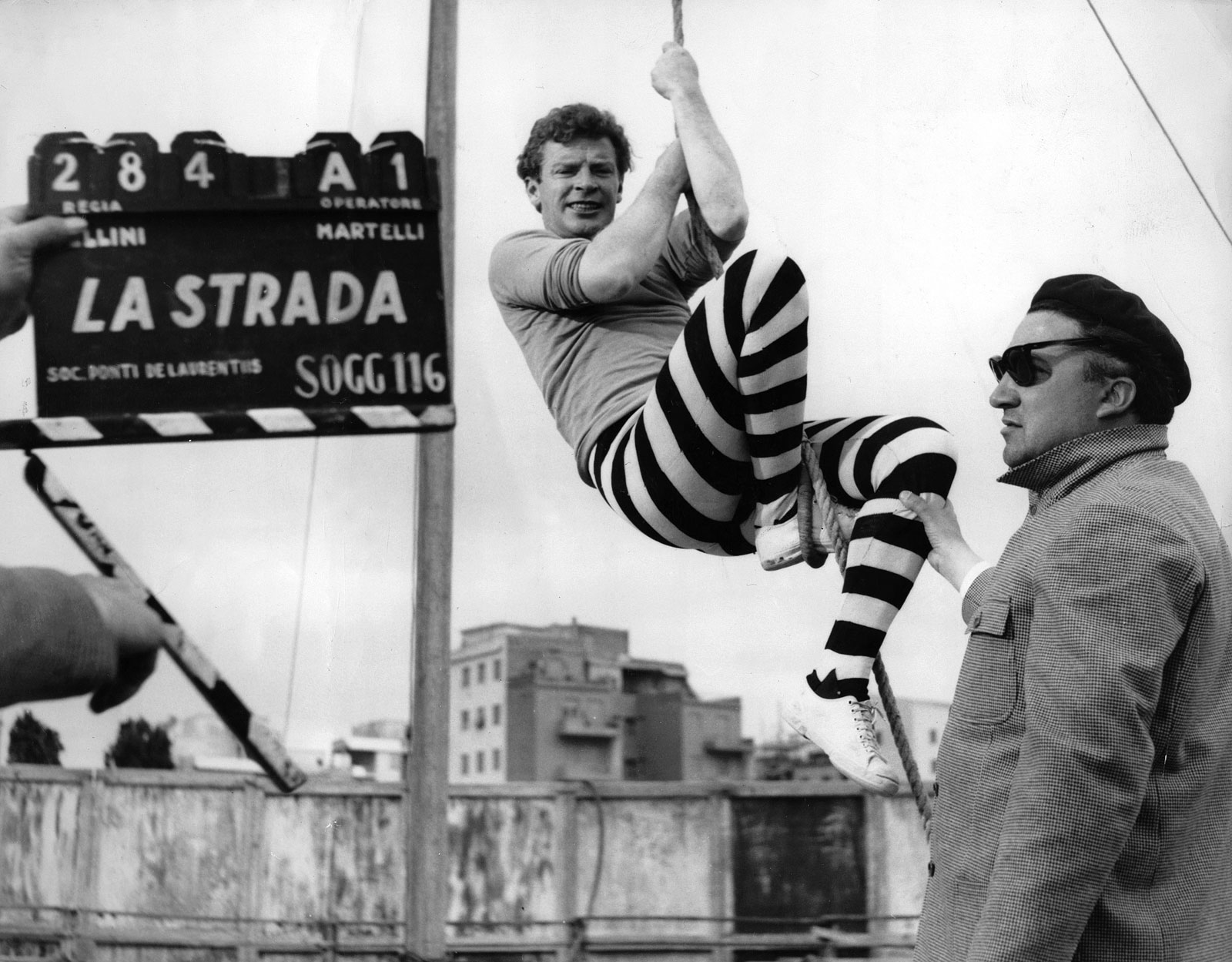We close out our 1954 celebration with Amir on one of Federico Fellini's classic from the year...
 Writing about canonical classics can be as difficult as it is rewarding. The larger amount of existing texts and the time that has been afforded to an artwork to cement its place in our cultural psyche allow for deeper familiarity and reflection in a way that is impossible with more recent films. On the other hand, well, fresh angles are harder to find. What is there left to say about a film like Federico Fellini’s La Strada? Not much, but in truth, you can never talk too much about one of the best films ever made.
Writing about canonical classics can be as difficult as it is rewarding. The larger amount of existing texts and the time that has been afforded to an artwork to cement its place in our cultural psyche allow for deeper familiarity and reflection in a way that is impossible with more recent films. On the other hand, well, fresh angles are harder to find. What is there left to say about a film like Federico Fellini’s La Strada? Not much, but in truth, you can never talk too much about one of the best films ever made.
Growing up as an Iranian cinephile, and gradually getting into more serious films as a teenager, Italian cinema is the most natural foray outside of the local arthouse. Iranian cinema is not as indebted to any Western filmic culture as it is to the films of Italian masters; those films strike a particularly strong resonance. (Consider that the latest poll of the greatest films of all time voted on by Iranian film critics includes The Bicycle Thieves, La Strada and Cinema Paradiso all in the top ten.)
Fellini’s films are of a different breed than the neorealism of Zavattini, De Sica and Rossellini whose influence loomed heavily over the arthouse I was voraciously consuming at the time. To the dismay of some of his contemporaries, Fellini veered off quite drastically from his roots in neorealist cinema. [More...]
This shifting of gears had already started with I Viteloni, it is La Strada that proves the more significant pivot point of his career, and the more enduring film.
Fellini himself certainly thought so, as he considered La Strada one of his most personal films, and one that gave a complete image of the worlds he wanted to depict, in all their magical and mythic glory. Yet, the conception of the film was nowhere near wholesome. Formed in his head as a collection of images and moods, Fellini began sketching visual notes of any idea that would come to him, from his surroundings, from his memories of childhood. He admits to beginning the process of writing the iconic Gelsomina (played by his wife, Giulietta Masina) by drawing a round circle on a piece of paper, something that eventually came to resemble her face. Anthony Quinn’s Zampano was based on a character he’d met in Rimini while growing up.
It is not surprise that a film that felt so intimate and personal to its creator feels the same to us more than 60 years later. The story of Gelsomina, a poor girl who is sold by her family to Zampano, a travelling strongman, has been dubbed the first real road movie. The brutish man and the innocent woman come together and travel city to city, join a circus, entertain communities desperately in need of joy, another man comes into the picture and his presence of puts a strain on the relationship. The threadbare plot bears a lot of elements that were familiar then and even more familiar now, dealing with love triangles, abusive men, poverty, sexuality and faith. It is Fellini’s touch of magic that makes the film so endlessly rewatchable.

Like a lot of great cinema, the film’s production was protracted and difficult, hit by a harsh winter that hindered filming in the seaside and Fellini’s crushing period of depression and eventual nervous breakdown. In retrospect, were these all blessings in disguise for La Strada? Are the melancholy mood of the film, the bitter, palpable coldness of the images on the screen by-products of the troubles behind the scenes? The positive impact could certainly be felt on the casting. Masina, whom Fellini fought for to get the role, delivers one of the iconic performances in film history. Quinn, whose schedule became a nightmare after delays meant La Strada’s filming would run into Attila’s, famously noted that his tired, ragged face did much of the characterization for him in the former film. For Fellini himself, the film became a significant achievement. It began the development of the unique, fantastical worlds that his filmography would later become associated with, but it also solidified his status as one of the world’s most important filmmakers. After two shared Oscar nominations for writing Rossellini’s films and a Silver Lion at Venice, it was with La Strada that Fellini finally became a household name; and won his first Oscar, too: the first ever competitive statue given to best foreign film.
